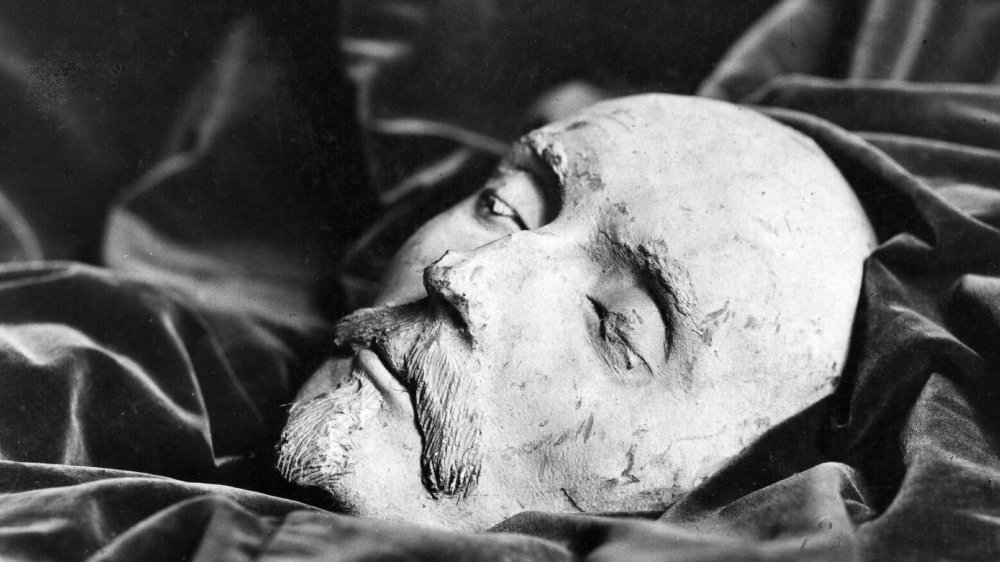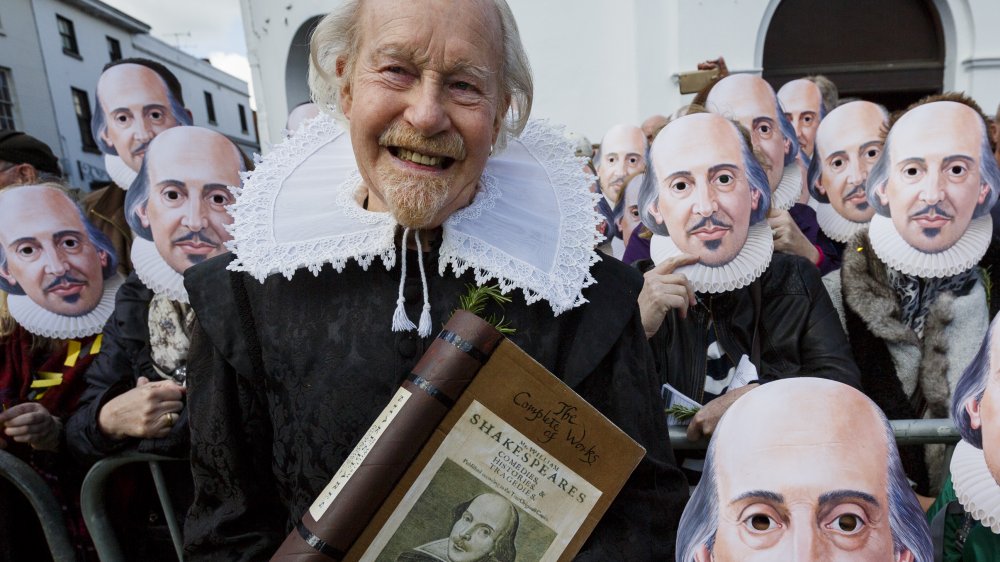The Truth About William Shakespeare's Death
William Shakespeare: author, theater nerd, and exception that makes the rule "just shave your head if you're going bald." Four hundred years and change after the death of the man that your sophomore year English major roommate wouldn't stop calling "the bard," there are still plenty of questions about the world renowned playwright's life, and just how he got down to the business of not-to-being. The guy was 39 plays and over 150 sonnets deep when he finally passed away, and didn't think to write so much as a passive aggressive social media post about what was going on in his life, let alone a link to the Gofundme page for his cirrhosis treatment.
Here's what we know. Maybe.
More questions than you can shake a speare at
WIlliam Kimberly Shakespeare was born sometime around April 26th, 1564 and, like lots of theater kids, got married maybe a little too early, tying the knot at 18 with Anne Hathaway. No relation. The two love birds pounded out three children and probably lived pretty comfortably, considering the lack of indoor plumbing and medical care at the time. By around his 52nd birthday, Shakespeare was pretty well retired. Then, as has been pointed out by such respected sources as the Encyclopedia Britannica, he totally died.
And that's about what we know about the death of one of the greatest writers of all time. Historians have been chewing on Shakespeare's cause of death for centuries, with theories running the gamut from "drank himself to death" to "it was 1616 and somebody sneezed near him."
Dying is easy. Reading Shakespeare's comedies is hard.
You could spend all day ping-ponging arguments back and forth as to whether or not Shakespeare knew that his number was almost up. He signed his will a month before his death, but it was also very much in fashion to have your estate laid out in those days, so that might not be worth reading into. In the document, he stated that he was "in perfect health & memory," but that was just the sort of thing people said in their wills, not a doctor's note saying that he was healthy enough to try out for peewee football. If you wanted to get really obnoxious about it, you could shove your glasses up on your nose and say that the last play Shakespeare wrote on his own was The Tempest, the story of a man who felt isolated and unneeded as obsolescence closed in around him. Maybe that was Shakespeare's way of funneling his experience into art as he realized that his health was failing and that death was around the corner. Or maybe you need to go outside and chuck a ball around, you nerd.
In any case, Shakespeare's understanding of his own mortality, whether specific or general, landed us with perhaps his greatest work of all: the line in his will where he left his wife of 34 years his "second best bed," calling to mind that famous line from Hamlet: "Doubt that the stars are fire, Doubt that the sun doth move his aides, Doubt truth to be a liar, but never doubt that I'll totally punk you on my deathbed, boo."


